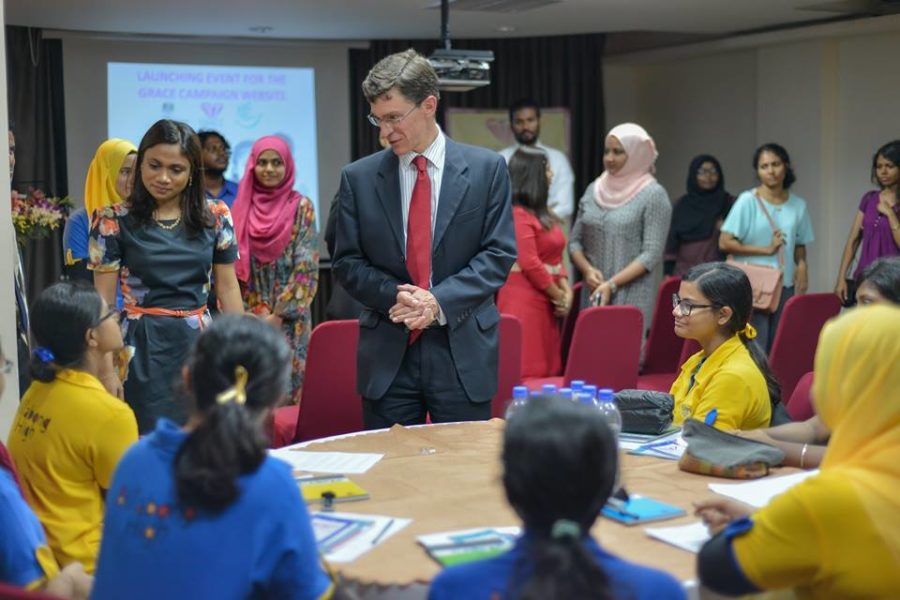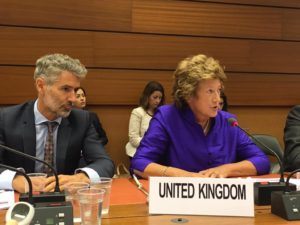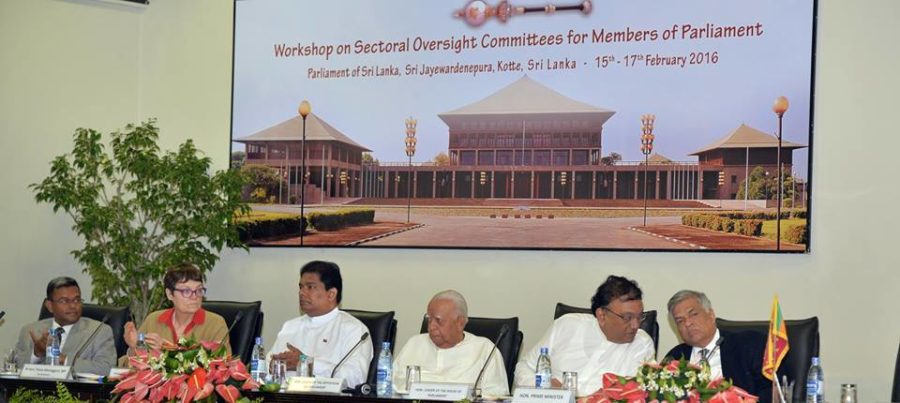15th September 2016 Colombo, Sri Lanka
Protecting the space

Democracy is the best path to long term peace, stability and sustainable development. It doesn’t just mean elections, though they are important too. It’s about having a say in the decisions that affect us, independent institutions that function as they were intended to and rule of law that upholds our human rights and protects us from discrimination. That’s why the UN 2016 International Day of Democracy takes sustainable development as its theme, and particularly Goal 16 which aims to “promote peaceful and inclusive societies for sustainable development, provide access to justice for all and build effective accountable and inclusive institutions at all levels.”

Worldwide, the UK wants individual citizens and organisations to have the space and freedom to participate in and influence the governance and development of their society. Civil society has a key role in strengthening democracy, holding governments to account and reducing the risk of human rights violations. That’s why we actively help protect and develop the space for civil society to operate.
Much of the work we do in this area is funded by our Magna Carta Fund for Human Rights and Democracy, the Foreign and Commonwealth Office’s dedicated programme fund supporting our global human rights and democracy work. In Sri Lanka, we are funding capacity building of civil society, including to challenge discriminatory legislation, engagement of youth organisations to help promote a culture of respect for democracy and human rights, as well as supporting Westminster Foundation for Democracy’s work that shares UK expertise to help strengthen the Sri Lankan parliament. Preparing this blog, I reread what I’d written for International Human Rights Day in 2014, which also took civil society as its theme. At the time, the democratic space was under real threat in Sri Lanka, and it is heartening to reflect on the changes the last two years have brought, and the way civil society can now work in partnership with the government to enable and embed positive change.

Unfortunately, the same cannot be said about Maldives, where the last two years have seen the democratic space shrink. Fundamental freedoms, particularly of speech and assembly, have been restricted. Key institutions and commissions have lost independence. The UK has been vocal about that. We’ve urged the Government of Maldives to take positive action to reverse the recent steps restricting the ability of the Maldivian people to exercise their democratic rights.
Lots of other friends of Maldives are equally concerned. At the Universal Periodic Review of human rights in Maldives, 102 countries raised issues. The Commonwealth Ministerial Action Group was very clear earlier this year that practical measures needed to be taken by the government of Maldives on a range of issues, including promoting freedom and space for civil society. CMAG meets next week in New York and will evaluate progress.

As well as raising our concerns, we are supporting Maldivian civil society. Maldives is become an increasingly difficult environment for human rights defenders to operate, and the recently passed defamation bill introduces further worrying controls. We are funding training programmes to build the skills human rights defenders need to do their work effectively and safely. We’re also focusing on women’s rights and gender equality. Our partnership with Advocating the Rights of Children is now in its second year, and we are funding their GRACE campaign: building girls’ confidence to navigate social, cultural, economic, and gender barriers. Through projects with Women on Boards and Hope for Women, we’re also promoting efforts to get more women into leadership roles. The Chevening South Asia Journalism Programme is also an opportunity for young Maldivian journalists to study in the UK, learning more about the media’s role in democracy and good governance and discussing challenges with regional colleagues.
Change is possible everywhere, but never more so than when good people stand up for what they believe in, practically engage on the ground and articulate a vision of a better future.
The UK is standing for re-election to the UN Human Rights Council: read our recent statement. The Chevening Scholarship application window is open until 8 November, and the Chevening South Asia Journalism Programme application window is open until 16 October.